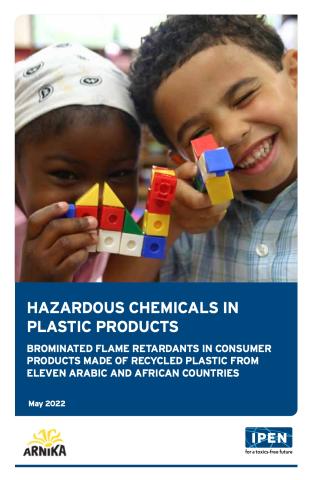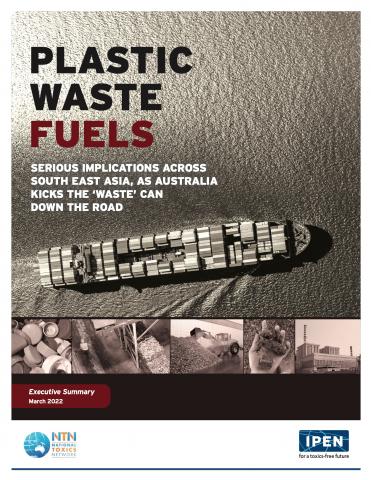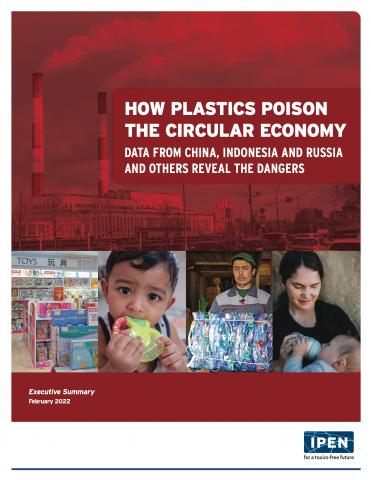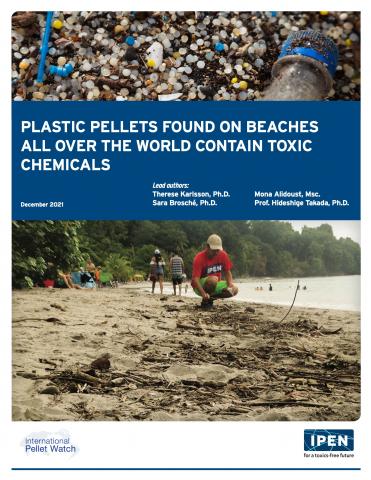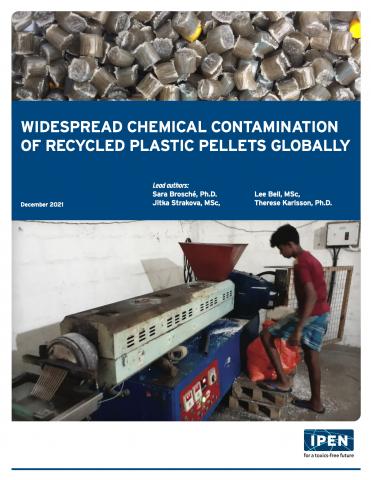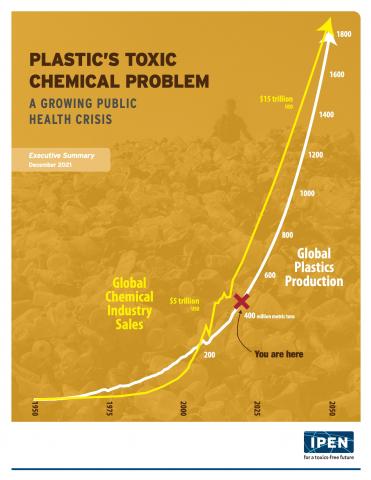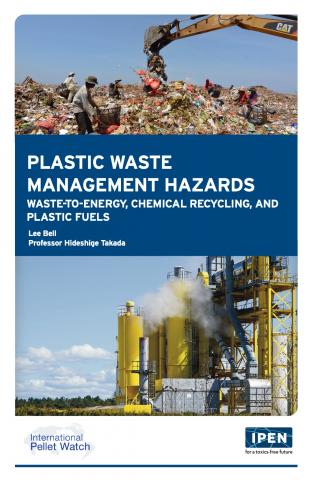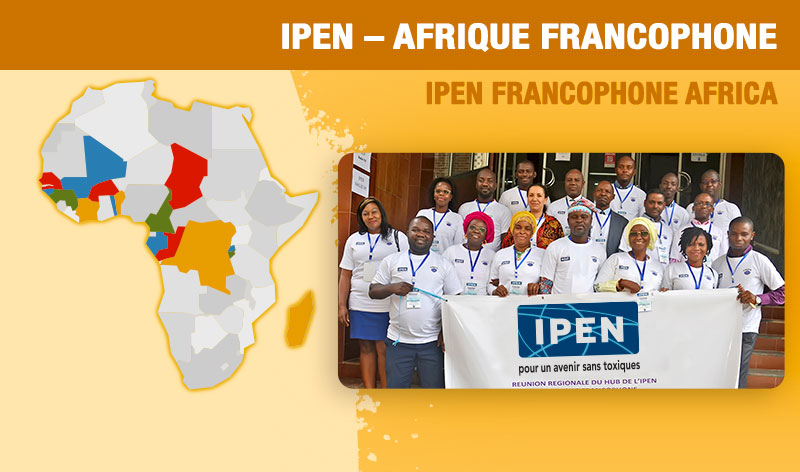
Top News

La santé humaine, environnementale et la lancinante préoccupation des substances chimiques
L’année 2023 aura été dense et intense en activités au sein de la coalition d’ONG IPEN ; la région Afrique Francophone n’a pas été épargnée. Plus d’une dizaine de subventions de voyage, plus d’une quinzaine de micro projets, une demi dizaine de rencontres virtuelles collectives, les plaidoiries et des sensibilisations victorieuses. Voilà qui pourrait se résumer les douze mois de l’année 2023 dans le centre Afrique Francophone de l’IPEN.
Un accomplissement rendu possible par l’implication de toutes les organisations participantes régionales, qui à chaque fois se sont rendues disponibles et disposées pour contribuer et favoriser les actions et activités visant la protection de la santé et de l’environnement. Mais aussi par l’apport technique et financier du secrétariat IPEN et des multiples donateurs, à qui nous formulons nos gratitudes.
Cependant, nul ne doute que les défis à relever sont encore énormes. La pollution par les polluants organiques persistants (POP), par le mercure, par les pesticides hautement dangereux, la pollution plastique et bien d’autres régis par le Nouveau Cadre Mondial sur les produits chimiques sont en constante évolution et seule une synergie commune, synchronisée et harmonisée devrait être envisagée pour leur réduction, puis leur élimination totale.
Le dernier trimestre de l’année 2023, comme les trimestres antérieurs, a été paré par diverses activités de terrain. Afin de mettre en évidence la pollution par les produits chimiques toxiques, d'attirer l’attention des différentes parties prenantes sur les conséquences qui en découlent, des campagnes multiples et variées ont été conduites dans l’ensemble de la région. Le présent bulletin met en exergue celles ayant singulièrement retenues notre attention.
More News
Upcoming Events
- Plastics Treaty INC-4
21 – 30 April 2024
Location: Ottawa, Canada - Science-Policy Panel Open Ended Working Group
07 – 24 June
Location: Geneva, Switzerland - POPRC-20
23 – 27 September
Location: Rome, Italy - Plastics Treaty INC-5
25 November – 01 December
Location: Busan, Republic of Korea
Recent Reports
Burundi: Burundi National Report on Highly Hazardous Pesticides (HHPs)
Chad: National awareness campaign on the plastic waste trade
Democratic Republic of the Congo: Les conséquences humaines et environnementales des produits chimiques et déchets dues à la pandémie du COVID-19 dans la ville de Bukavu et ses environs (COVID-19 Impacts on Chemicals and Wastes)
Mali: National Report on HHPs in Mali
Niger: Alternatives to Highly Hazardous Pesticides in Niger
Togo: National Report on Highly Hazardous Pesticides (HHPs) and Alternatives in Togo
Newest IPEN Reports
Hazardous Chemicals in Plastic Products
Both the environment in Africa and the Arabic region and the human health of Africans and people from Arabic countries suffer from toxic chemicals and imported wastes, including illegal wastes, more than in developed countries.
This study shows that toxic chemicals are present in toys, kitchen utensils, and other consumer products purchased from African and Arabic region markets in Burkina Faso, Cameroon, Egypt, Ethiopia, Gabon, Jordan, Kenya, Morocco, Syria, Tanzania, and Tunisia.
Plastic Waste Fuels
IPEN studies show how policy is driving massive investment in plastic waste-to-fuel processing, and that exports are threatening waste management in ASEAN countries and undermining the Basel Convention and climate change commitments.
Plastic Poisons the Circular Economy
IPEN published a number of studies showing significant obstacles for countries seeking to implement safe plastic circular economies. The studies reveal that countries are unable to handle large volumes of diverse plastics waste streams safely, and the reality that, without regulations requiring plastic ingredients to be labeled, countries are blindly allowing known toxic chemicals onto their markets in plastic products.
Plastic pellets found on beaches all over the world contain toxic chemicals
Preproduction plastics as pellets, or "nurdles", can carry many different chemicals, both those added to the plastics and pollutants that attach (sorb) to them in the environment. Often lost during production, transportation, and storage, pellets have been found on beaches all over the world since the 1970s. This study of plastic pellets gathered from beaches in 23 different countries contained many chemicals of concern, some in very high concentrations.
Widespread chemical contamination of recycled plastic pellets globally
Because almost all plastics contain toxic chemicals, recycling processes can perserve and can even generate toxic chemicals, such as dioxins. In this study, pellets made from recycled HDPE, intended for use in new products, were purchased from 24 recyclers in 23 countries and analyzed for 18 substances. The large number of toxic chemicals in many of the samples highlights the need to rethink recycling to ensure it does not perpetuate harms..
Plastic’s Toxic Chemical Problem: A Growing public health crisis
This summary of our two plastic pellets reports encapsulate the broad issues related to toxic chemicals in plastics and the concerns with recycling processes that can perserve or generate toxic chemicals.
Plastic Waste Management Hazards
Plastic waste has become an unprecedented pollution issue, blanketing our planet in the petrochemical remnants of plastic production. This report examines current and emerging methods by which plastic waste is managed globally and questions whether any of them present a solution to the rapidly accelerating generation of plastic waste. In short, they don't and the only long-term answer is to produce less plastic.
Regional Hub
Centre de Recherche et d’Education pour le Développement (CREPD)
Based in Cameroon
Regional Coordinator: Achille Ngakeng
Contact: fahub@ipen.org
CREPD is a Cameroon-based NGO created in 2004 and is dedicated to bridge the gap between science and action in Cameroon and sub-Sahara Africa to promote sustainable development. The organization is instrumental in advising science-based informed decision and policy making processes, as well as the national development planning on “what is needed at grassroots levels” to enable sustainable development through daily sound management of chemicals and wastes, sustainable agriculture, and responsible mining. Many efforts are made to entail continuous capacity building through North-South collaborative research/activities (OK International, USA; BRI, USA; and Ashland University in Ohio, USA); and collaboration with national University through student internships and volunteering programs (ENSAI, University of Ngaoundere, Adamawa Region, Cameroon). CREPD has a consultative status with UNEP, is an active Participating Organization of IPEN and currently acts as IPEN’s Regional Hub Host for Francophone Africa. CREPD received the first prize of SAICM Award in 2013 for outstanding QSP project implementation in Africa.
Get our Newsletter
Video Highlight




